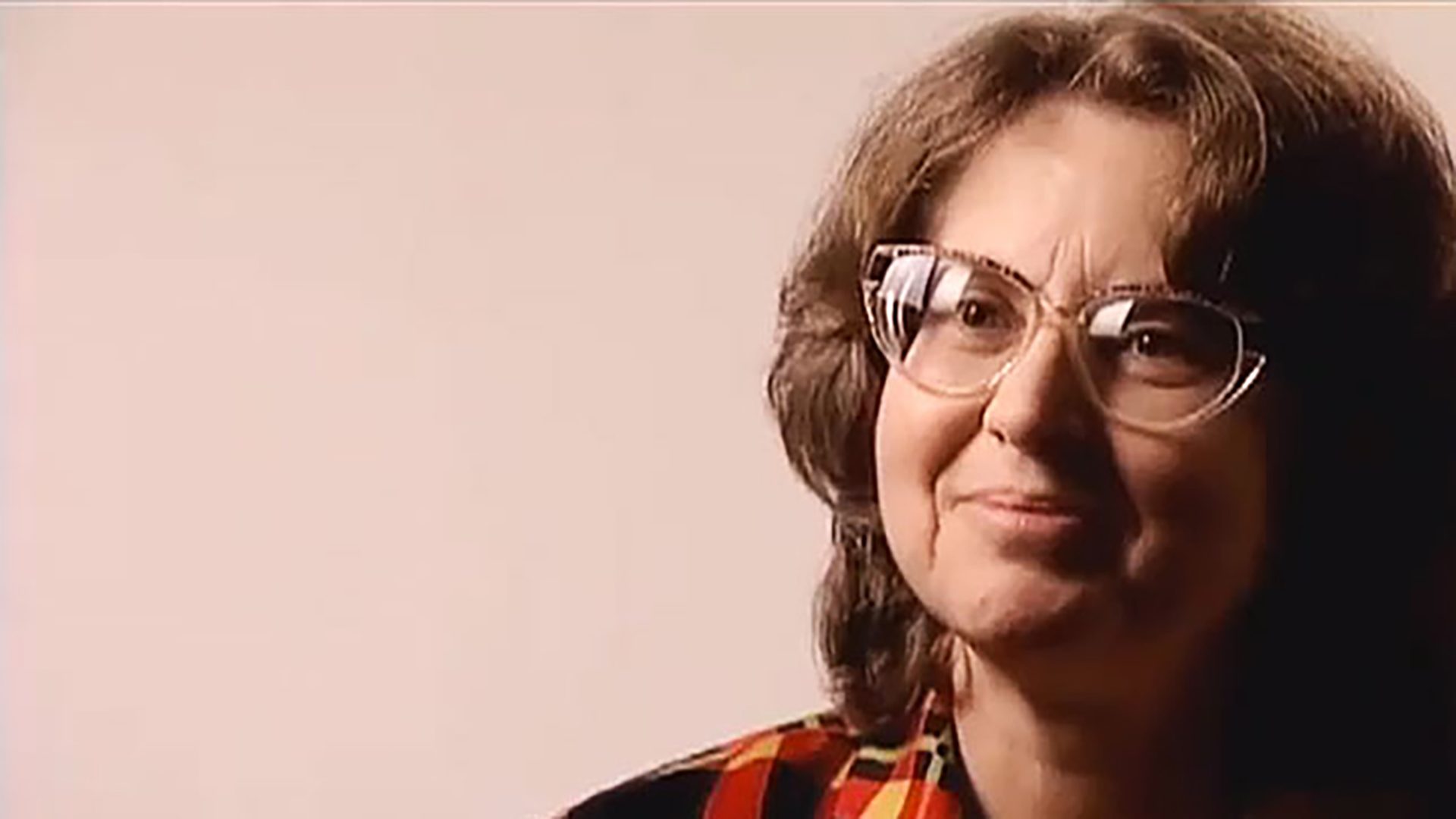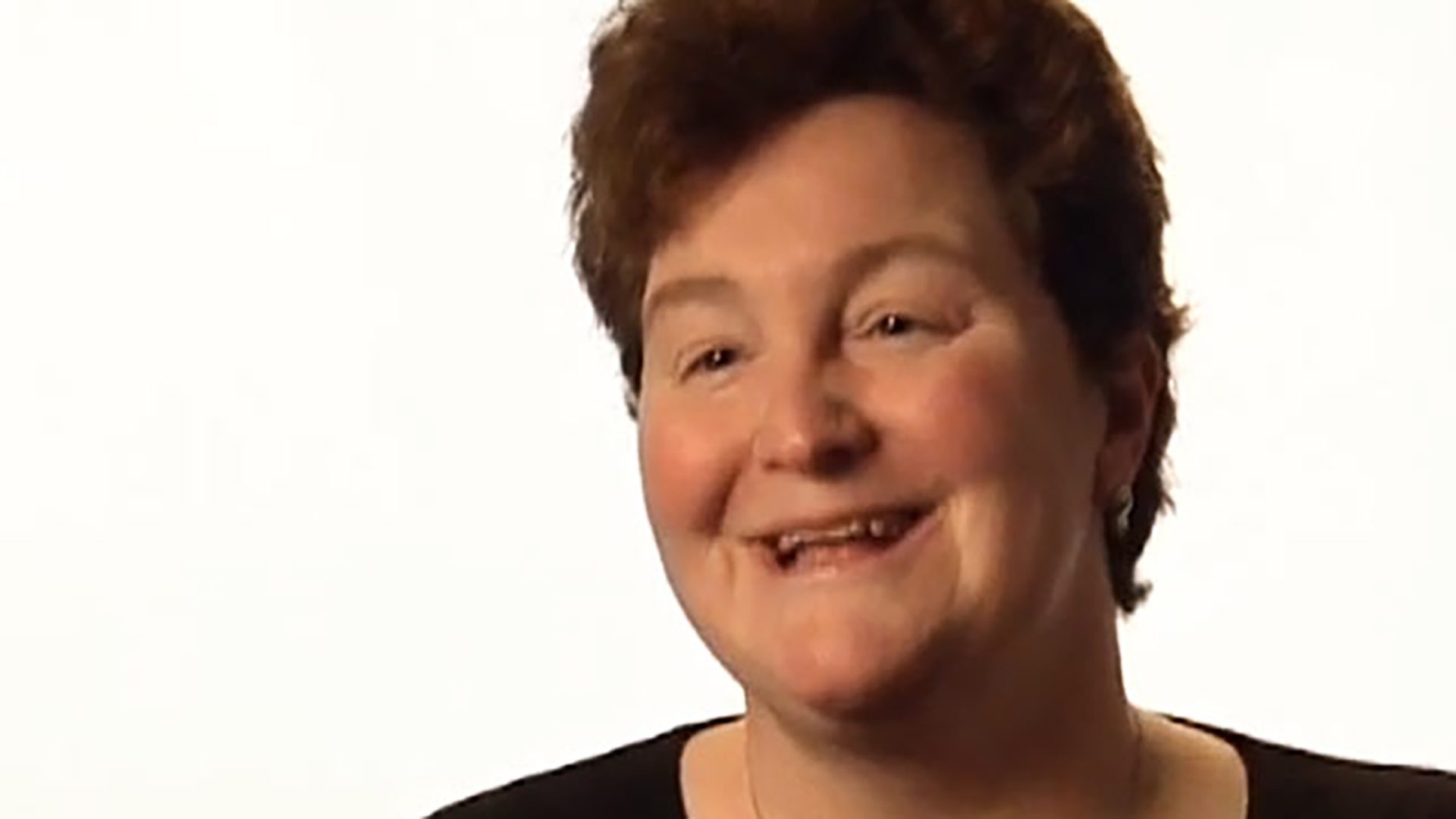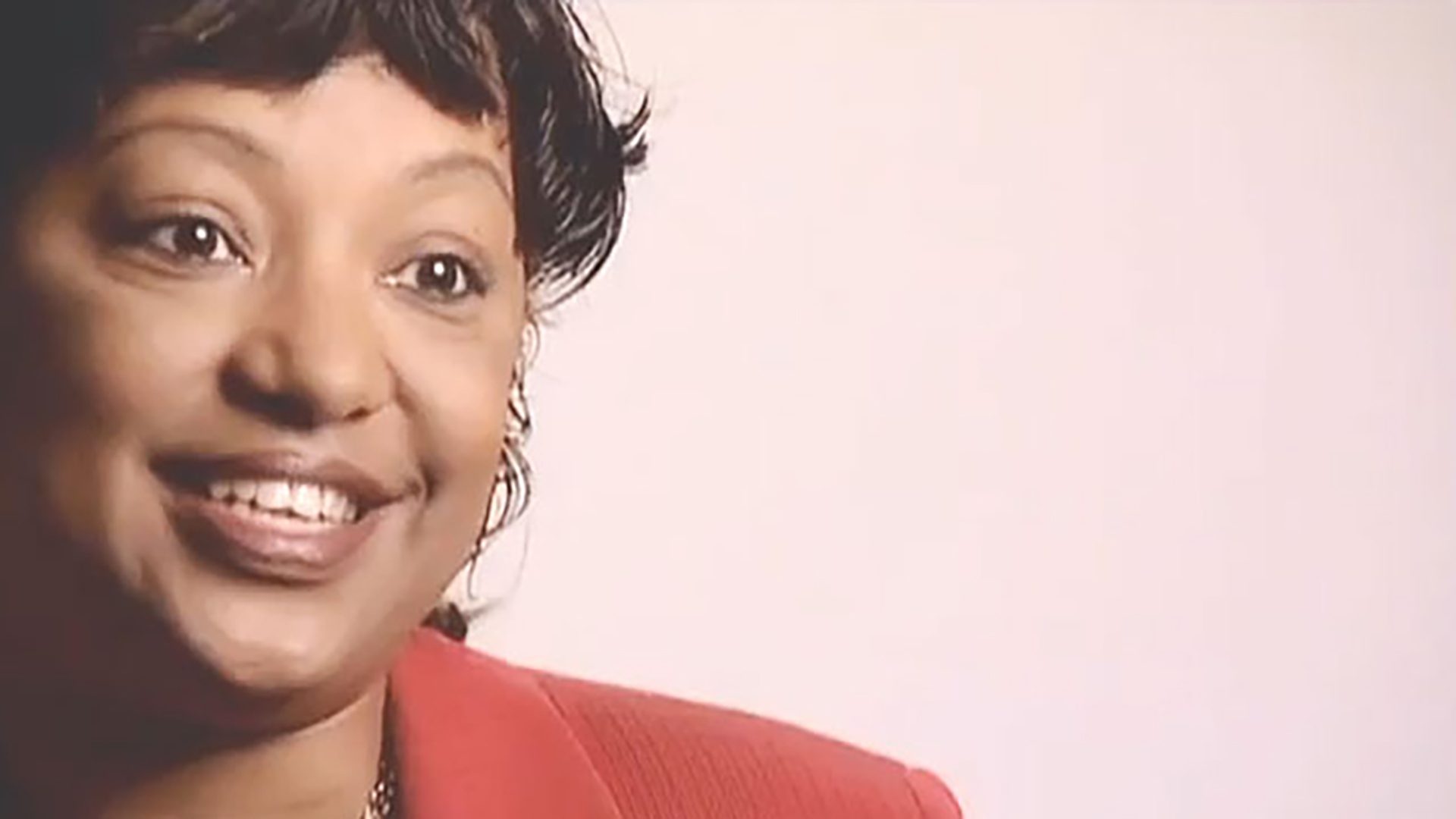Survivor Interview – Ann F.
Ann is a breast cancer survivor. She talks about physical changes after cancer, how cancer affected her sexuality, and her husband’s support.

When I was diagnosed it was 1993 a report had just been issued by the National Surgical Adjuvant Breast and Bowel Project, and they had just produced the eight-year results of a study comparing mastectomy, lumpectomy, and lumpectomy with radiation, and at that time the overall survival for each was the same. I had a lumpectomy, and I decided not to do radiation based on that result. Once I saw in the study that it didn’t affect overall or actual survival, I felt that I could risk it. It was with great dismay that I had a recurrence two years later, but I’m still here and it’s 11 years.
I also did not do chemotherapy because I’m chemically sensitive, and at that time I was so sensitive that if I sniffed an aspirin I could pass out. My whole system was very disruptive. And although chemotherapy may be an effective treatment for a stage 1 breast cancer, it’s usually less effective, and for someone that’s chemically sensitive, I felt that it just wouldn’t be appropriate. So when I got to my first support group everyone said, “But Ann, what are you going to do?” and I had no idea, so I had to explore what there was, and that began my ten-year voyage of exploration of complementary and alternative therapies, many of which I did do over the years.
I’ve had two mastectomies, each 10 months apart, and over time I’ve had lots of strange feelings in the chest wall. Lots of, not quite pain but discomfort, itchiness, crawling feeling, sometimes electric shock kind of feeling, and never really sure what that is. Most of us with cancer are always fearful of more cancer, so you get a pain and you think, “Oh-oh, this is it.” But over time I’ve grown to realize that that’s just the way things are. I’ve discovered through something I saw on like the Discovery Channel years ago, when I have a really bad itch in the non-existent breast I can sort of rub the air in front of it and it will reduce the feelings that are going on that I can’t get to because they’re not really there. Unfortunately, phantom pain is a reality for a lot of us. I’m not the only person who has this difficulty, but I’m sure I’m the only one who massages the air.
My physician neglected to inform me that he was going to remove lymph nodes, and I developed lymphedema within three weeks after the surgery. Lymphedema is a permanent swelling of the arm, and my arm has been swollen ever since, and that was 11 years ago. Lymph fluid goes to the area when something is damaged or bruised or sunburned or burned, and it increases the swell and as the lymph fluid flows down into the arm to heal that area, and then unfortunately it’s very difficult to get it back up, but massage does actually help. I do my own massage every single morning after the shower to help it move along.
I’ve had lots of problems with it, including pain and discomfort, I can hardly lift my arm at the end of the day because it’s so tired, and I can’t carry things. I do work out with small weights, but I have to use less weight in this arm than in my good right arm, and it makes it difficult when traveling.
The physician’s job is to inform you of the downside risk of any kind of treatment or surgery or anything like that that’s going to happen. In my case my surgeon forgot, so I didn’t know that it was going to happen, so it was more of a shock to me, and he also didn’t diagnose it, which I understand is quite common. A failure to diagnose is difficult, because you go a period of time with this pain and discomfort not knowing what’s going on, and you don’t get treatment fast enough. Nowadays there is an opportunity to reduce the possibility of developing this ailment by using the sentinel node biopsy, and people should have treatment as soon as possible to help reduce it.
I think it’s very important to make a fully informed decision. Download information, studies, and resources, and bring it to your physician so you can start a dialog. It’s very important to have a dialog about what you’re doing, if you think it’s going to work. You’ve got to talk to your physician about it; that’s a critical thing. Once you’ve had enough information, as much as you can absorb at this difficult time, you can make a fully informed decision for yourself. And if there is a mind/body connection, and lots of evidence says there is, it’s important to feel good about the choices that you’ve made.
Because of my chemical sensitivities I couldn’t even consider reconstruction, and when I thought about it, I wasn’t comfortable with the idea of having breasts that were not functional in the way that I cared about them. I’m a very sexual woman and to me my breasts meant a sexual connection, and that wasn’t going to work because there’s no feeling after reconstruction in a case like mine. I still went out into the world with no breasts, and I had had D-cup breasts, so that was a big change. I got my breasts when I was 10 years old, and I had them for 35 years, and then they were gone. It was quite a shock.
I was particularly embarrassed meeting people I used to know, and I had a lot of emotion come up about that, even though I thought, “Oh, I’m a powerful, strong woman and I’m in charge of my life.” And I met people who knew me before and didn’t know that I had breast cancer. I was embarrassed, and I felt uncomfortable.
I think it was really the support of my husband that made it possible for me to feel OK about it. He’s so loving and so supportive. In fact, the night before the first mastectomy that I had he said to me, “You have the most beautiful legs in the world,” kind of signifying that he was now a leg man instead of a breast man. I have some moments now and then, you know, when I feel uncomfortable, but I’ve pretty much gotten past that.
I think also a lot of people have sexuality issues because you’ve been through terrible treatment when you didn’t feel like being sexual at all, and that brings you further apart from the loved one in your life, because let’s face it, sex is the glue, as my husband likes to say all the time, and it’s very difficult to be comfortable when so many things are going on with your body, when you have body image problems. Lots of things make it very difficult. I think it’s very important for all of us to be aware of ways to go forward with making ourselves feel comfortable with our bodies again.
I think our sexuality is a very delicate area, in general. People have a lot of problems with that. It takes a long time to be comfortable. People who are going through cancer, first the diagnosis is a shock and when you’re shocked you don’t feel sexy. When you’re a woman medicines may dry you up vaginally and then you have another problem. When you go through menopause, particularly a chemically-induced menopause, you have those symptoms way earlier than you might have. There’s a lot of implications and things that will be a problem, but I really think it’s important to get back to your sexuality because that’s going to make you feel better and bring some joy back in your life at a time when you really need it.
I believed from the beginning that I was not going to die from cancer. I’m not sure what brought that to my mind, but it stayed with me the whole time. I didn’t have any friends with breast cancer, but eventually somebody connected me, and this woman whom I did not know spoke to me and gave me all sorts of information and advice, and including that she was a 10-year survivor, and when I heard that I was so happy because I knew then that you could survive cancer.
I don’t want to say cancer made my life better, because that’s not true at all. It’s very difficult and a very horrible thing to go through. I really think that the best advice that a survivor can have is to be true to themselves and to believe in what they feel is going on. If they feel like things aren’t right, they need to speak to their physician about it. If they’re having pain or discomfort they need to talk about it. It’s important that your physician know everything that you’re feeling, that your family understands what you’re feeling, not to let it build up so that it becomes an emotional overload on top of the physical overload of the disease.
Survivorship to me means that we’re going on with our lives, and that we’re going forward knowing that we have a life to live and living it to the fullest. I always stop and smell the roses, but now I’m smelling them double-time. I mean, I am really walking around with roses in my nose all the time. I believe it’s really important to care. I want to give back to the community. That’s what I do every day of my life. I try and help people. I feel great about it. Knowing that I could give back to the community of people with cancer is important to me, and it’s made my life better.
I really think the best thing we can do, whether we have a cancer diagnosis or not, really, is to get into exercise, get into eating healthy, get into caring and loving ourselves and our families and the people around us. Ask for help, reach for help, get part of the community, be active, and feel good about yourself. This is your real life.
My name is Ann Fonfa, I’m 55 years old, and I’m a breast cancer survivor.

